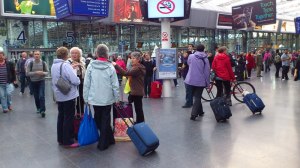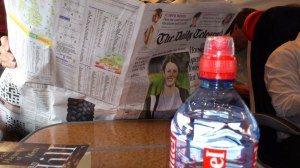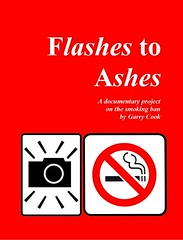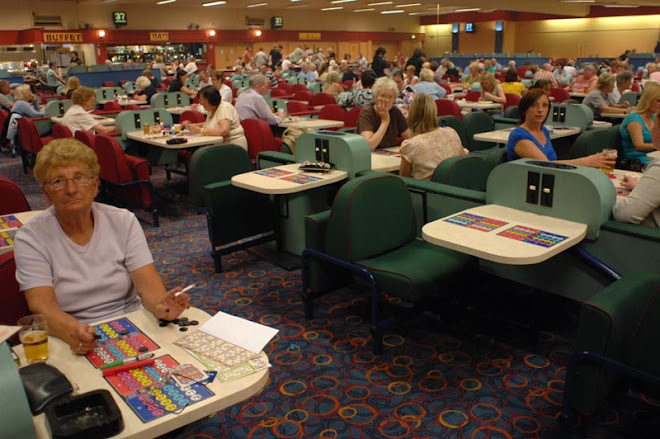[gallery]You interviewed four paedophiles in Holland - what drew you to that and how did you find it?
Paedophilia is a very difficult subject and because of that it is hardly ever discussed. The media has a role to play in this area and, in this country, it has failed to contribute to managing the problem. How many people know if paedophilia is a disease, is hereditary or just a choice by one person?
We need to know more about the subject because the present system of dealing with it – which is led by the media, particularly the printed press – is to condemn the perpetrator, expose them and hound them out of their homes.
But these people have to live somewhere and surely it is far better to try and manage them in society rather than force them underground where the situation can, and often does, worsen. In Holland there are politicians and individuals willing to speak about these issues and the media reports on some of this with some intelligence. It is a hugely different way of thinking to here in Britain.
You've done a photo project of Hebden Bridge, a quiet and picturesque town in West Yorkshire which is quite at odds with some of your more gritty work - why did you choose it as a project?
Because part of my work aims to attract more people to photography as art, projects like my Hebden Bridge images are important. It is a simple set of images documenting a town, its people and their way of life.
I am applying the same principles to this kind of project – to document and record, but am including less people and more landscape imagery. This traditional subject-matter is more accessible to people who don’t live and breathe photography and these are the people photography as in industry needs to attract if it is to survive as a profession.
At the moment photography – and I’m talking of documentary, editorial, street photography and social issues photography – is struggling because there are so few avenues for it to be seen and to be sold. The Hebden Bridge project is part of the Love Town series and will soon be published in issue three of the Love Town zine.
How did you get involved with Control and how have you found it collaborating with others?
The two exhibitions we have put on this year, in Liverpool ad London, have been superb. In Liverpool we got ourselves a very rundown warehouse and put on a show without electricity but with free running water – down the walls. It was a spectacular success, even hosting one of the big corporate events during the Look2011 International Photography Festival we were part of.
In London we have Oxford House, a quiet stunning venue in Bethnal Green. I don’t think we would have got the venue or been part of Photomonth, the East London Photography Festival if it wasn’t for one or two members of our group, particularly Pablo Allison and Ann-Marie Conlon who new the venue and had contacts within the festival. It’s these kinds of things which makes collaborating a joy.
But collaborating with others is not always easy. I put on a show in Blackpool this summer in less than two weeks, working with just the curator, Tom Ireland. It was fast and easy. With Control we give ourselves six months build-up to each show we do and at times it can be confusing to keep track of what has been decided and slow to agree to a proposal.
Somehow we ended up launching the show several days before the preview night which means two trips to London inside a week. I couldn’t tell you why this happened but it’s one of those group problems where the majority rule sometimes over-rides common sense.
There are usually nine or ten of us involved in Control. We have been lucky in that we are a placid lot but when people don’t reply to your emails – and often you feel you don’t need to reply because you agree with what’s been proposed so don’t feel the need to comment – it can be frustrating. I’ve been on both sides of this scenario and no-one is really in the wrong but it can make you wonder why are you putting in the effort but are getting nowhere.
Of course, come showtime everyone is delighted and these problems are distant memories. We keep up-to-date via an email group but so much information can get lost very quickly. The problem is we haven’t found a better way of communicating. Someone suggested Blackberry messaging but there was nearly a riot.
Control is a fantastic exhibition, examining the theme of Control in people’s lives through some hugely diverse styles of photography and subject matter. For my strand, Women and Alcohol, you get to see images of women getting drunk. It’s one of the more light-hearted projects in the exhibition.
Anything else you'd like to add?
I’m really keen to put on an exhibition in Preston during the Guild 2012 celebrations. I’m looking at documenting Preston’s diversity. For this I’m hoping to work with community figures to help me reach out and find inspirational and people to photograph, and also want to involve local business to help finance the project.
Control: www.thephotogroup.co.uk
More photographs at www.gazcook.com
The Love Town zine is available to by at www.lovetown.eu
The love Town podcast is available to download for free on iTunes at http://bit.ly/lovetownpodcast
Paedophilia is a very difficult subject and because of that it is hardly ever discussed. The media has a role to play in this area and, in this country, it has failed to contribute to managing the problem. How many people know if paedophilia is a disease, is hereditary or just a choice by one person?
We need to know more about the subject because the present system of dealing with it – which is led by the media, particularly the printed press – is to condemn the perpetrator, expose them and hound them out of their homes.
But these people have to live somewhere and surely it is far better to try and manage them in society rather than force them underground where the situation can, and often does, worsen. In Holland there are politicians and individuals willing to speak about these issues and the media reports on some of this with some intelligence. It is a hugely different way of thinking to here in Britain.
You've done a photo project of Hebden Bridge, a quiet and picturesque town in West Yorkshire which is quite at odds with some of your more gritty work - why did you choose it as a project?
Because part of my work aims to attract more people to photography as art, projects like my Hebden Bridge images are important. It is a simple set of images documenting a town, its people and their way of life.
I am applying the same principles to this kind of project – to document and record, but am including less people and more landscape imagery. This traditional subject-matter is more accessible to people who don’t live and breathe photography and these are the people photography as in industry needs to attract if it is to survive as a profession.
At the moment photography – and I’m talking of documentary, editorial, street photography and social issues photography – is struggling because there are so few avenues for it to be seen and to be sold. The Hebden Bridge project is part of the Love Town series and will soon be published in issue three of the Love Town zine.
How did you get involved with Control and how have you found it collaborating with others?
The two exhibitions we have put on this year, in Liverpool ad London, have been superb. In Liverpool we got ourselves a very rundown warehouse and put on a show without electricity but with free running water – down the walls. It was a spectacular success, even hosting one of the big corporate events during the Look2011 International Photography Festival we were part of.
In London we have Oxford House, a quiet stunning venue in Bethnal Green. I don’t think we would have got the venue or been part of Photomonth, the East London Photography Festival if it wasn’t for one or two members of our group, particularly Pablo Allison and Ann-Marie Conlon who new the venue and had contacts within the festival. It’s these kinds of things which makes collaborating a joy.
But collaborating with others is not always easy. I put on a show in Blackpool this summer in less than two weeks, working with just the curator, Tom Ireland. It was fast and easy. With Control we give ourselves six months build-up to each show we do and at times it can be confusing to keep track of what has been decided and slow to agree to a proposal.
Somehow we ended up launching the show several days before the preview night which means two trips to London inside a week. I couldn’t tell you why this happened but it’s one of those group problems where the majority rule sometimes over-rides common sense.
There are usually nine or ten of us involved in Control. We have been lucky in that we are a placid lot but when people don’t reply to your emails – and often you feel you don’t need to reply because you agree with what’s been proposed so don’t feel the need to comment – it can be frustrating. I’ve been on both sides of this scenario and no-one is really in the wrong but it can make you wonder why are you putting in the effort but are getting nowhere.
Of course, come showtime everyone is delighted and these problems are distant memories. We keep up-to-date via an email group but so much information can get lost very quickly. The problem is we haven’t found a better way of communicating. Someone suggested Blackberry messaging but there was nearly a riot.
Control is a fantastic exhibition, examining the theme of Control in people’s lives through some hugely diverse styles of photography and subject matter. For my strand, Women and Alcohol, you get to see images of women getting drunk. It’s one of the more light-hearted projects in the exhibition.
Anything else you'd like to add?
I’m really keen to put on an exhibition in Preston during the Guild 2012 celebrations. I’m looking at documenting Preston’s diversity. For this I’m hoping to work with community figures to help me reach out and find inspirational and people to photograph, and also want to involve local business to help finance the project.
Control: www.thephotogroup.co.uk
More photographs at www.gazcook.com
The Love Town zine is available to by at www.lovetown.eu
The love Town podcast is available to download for free on iTunes at http://bit.ly/lovetownpodcast







No comments:
Post a Comment